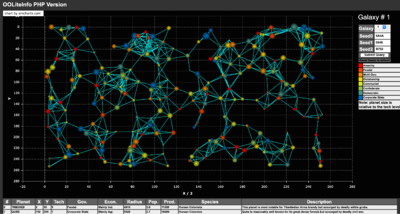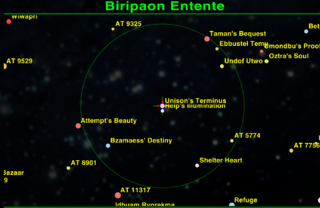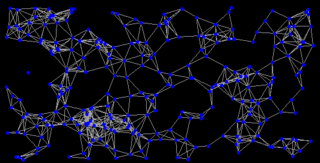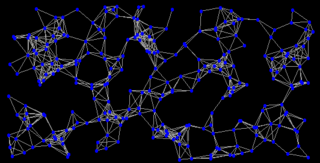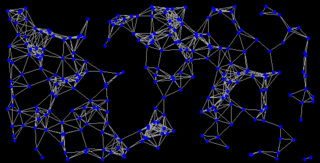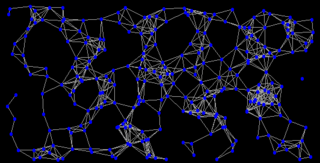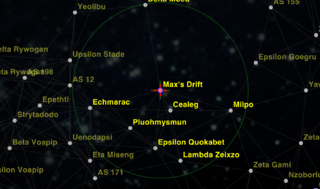Galaxy Seeds
Having found this stuff dotted around, I present the collection. I'm not a programmer, so I don't understand how to do it. Cholmondeley.
Galaxy Seed
The Galaxy Seed is the magic number which generates each galaxy/chart in the game. Change this seed, and you change the shape of the galaxy - and the depending on your version of Oolite - distribution of government systems, economic types etc, etc. The Galaxy seeds for The Eight are hardcoded into the game, but can also be read from the older Oolite Saved Game files if you want something different.
The seed is a set of 6 numbers: the seed for Galaxy One (or Galaxy 0 as it is labelled in the game code) is 74 90 72 2 83 183
Save-game file
As mentioned above, the older save game files (e.g.: Oolite v.1.77) contain the galaxy seed:
<key>galaxy_coordinates</key> <string>33 185</string> <key>galaxy_number</key> <integer>0</integer> <key>galaxy_seed</key> <string>74 90 72 2 83 183</string>
(note that this is not in hexadecimal)
Material
Interactive Maps
- By Maaarcooose. OoLiteInfo PHP Version! you can change the galaxy seeds and see the results on both the map and on the planet names/descriptions
- By Phantorgorth. Oolite Interactive Map. Discussion here. You can change the galaxy seed and generate a different galaxy. You can then inspect your new seed with the Interactive Map and see if it makes any sense for the game (ie a really useful and exciting new galaxy, all TL 1 anarchies, each more than 7ly distant from every neighbour!).
Pleb's Oolite Galaxy Generator
- Pleb's Oolite Galaxy Generator GitHub site (Beta Version, August 2021)
- Download Oolite Galaxy Generator v1.0.1
- Creates new galaxies for Oolite, but not the F7 page descriptions. Only works for Windows computers, but created galaxies presumably work on anything once created!
- Discussion is here (BETA TOOL) Oolite Galaxy Generator & here More/ larger galaxies
Cim's Oolite Galaxy Generator
- Cim's Oolite Galaxy Generator (for Windows only)
Working examples of new galaxies
- SOTL Exploration & SOTL Altmap for examples (and different games too!). These use the new scenario oxp format devised by cim for v1.79.
PhantorGorth's Galaxy Seeds
In 2012 Phantorgorth produced three candidate galaxy seeds with maps of the 8 galaxies derived from each seed. By using the Interactive Maps above, one can see the names/properties of each of the generated systems in each of these. Post with details here (2012).
Galactic Hyperdrive XG Template
- Template for a Galactic Hyperdrive XG to reach more galaxies (Wildeblood, 2012). You need to know how to manipulate the Galaxy Seeds, and rejig all sorts of code. Note: Wildeblood removed some of his material from his box sites when he left the BB back c. 2016. See also Wildeblood's Alternative Ooniverses OXP.
BB Discussions
There have been quite a few discussions on the subject - the earliest being in 2005!
- The essential spirit of Oolite? (2011) - see Wildeblood's & Aegidian's posts.
- Galaxy seeds and system properties (2012) - how to do it, examples of seeds (p8), etc. This thread has less than the typical amount of off-topic noise, and so far about 150 on-topic posts discussing alternative and additional galaxies. There are example seeds and images of the charts they will produce, there are instructions for using them by modifying a save file, there are instructions for modifying Oolite to use either alternative galaxies or additional galaxies, there are explanations of what functions will work normally and what won't.
- More/ larger galaxies (2013): on/off switch for another 8 galaxies, more (512) systems/galaxy... Summary at the end.
- 281-and-a-half TRILLION galaxies... (2019) - useful analysis at start - see Stranger's wry quip at the end!
- Fun star map (2021) - Stranger and Redspear raise some good points.
- In 2012 some of the F7 screen descriptions started changing from those generated by the Galaxy Seeds - i.e. from the original descriptions in Classic Elite. See Tiared Oddity.
Critique
- Comments of Cim (2012):
Well, with 2048 systems in the original 8, it's not as if the average player - or even a committed member of the Explorer's Club - is going to visit them all in a hurry. So an extra 2048 from another 8 galaxies which are more of the same (but with fewer content or mission OXPs available) doesn't immediately sound appealing. What they need is interesting stories that couldn't be told in the original 8.
There really isn't a lot of difference in direct gameplay terms between Sector1/Ensoreus (Gal 1, Rich Ind Corporate, TL 12) and Sector5/Edxebere (Gal 5, Rich Ind Corporate, TL 12). But while Ensoreus is the technological and industrial anchor of a small cluster of mostly-agricultural stars, Edxebere is a gateway system - along with its sister world of Gediesqu - between the dense mostly-stable cluster of Galcentre G5, and the dangerous and bottleneck-filled trail that leads from the Siege Worlds down to the trader's graveyard of Bizaar.
Ensoreus is a local trading hub of some importance, well positioned to fend off competition from Zaonce and Tionisla on the edges of its cluster - and it exploits this to keep the nearby Agricultural worlds mostly pretty poor and dependent on it.
Edxebere - with Inbior, Bisoaton, and a range of other high tech worlds just two jumps to its north - is mainly a place people go through on their way to somewhere more interesting, or for emergency repairs after a nasty experience in Anisat when traversing the trail eastward.
The stories that get told about each place are very different, despite their apparent similarity. There are three types of stories to tell ... not without overlap, of course:
- 1) The unfolding personal narrative as you play the game
- 2) Stories told through the medium of fiction
- 3) Stories told through a mission OXP.
There are entire regions of the Eight - in some cases getting on for entire galaxies - which don't yet have their stories told to a wide audience (indeed, once you get out of Chart 1, the stories get much sparser). If you start with the topology, and work out of the story, there are hundreds of interesting OXPs and/or novellas yet to be written, just from the existing eight charts.
Of course, sometimes you want to start with the story, and then find a place in the charts to set it. The charts are very diverse already, so there's usually space for it. So - a 9th chart is only useful in my opinion if it lets a story be told that someone wants to tell but can't in the original 8 because there's nowhere it makes sense to set it. Find that story - and a chart that allows it - and there's your justification.
Incidentally, this is why the 7LY jump limit is for me the key thing that makes Oolite what it is. With the jump limit increased by a mere 0.2LY, for instance, a jump from Bexe to Zaenza becomes possible, and the Steel Halo in Gal 5 goes from being an extremely interesting branch with one story already set there - and at least one other very obvious story no-one's yet published - to being a relatively dull cluster of industrial and semi-industrial worlds.
- Stranger's critique of endless and empty universes of possibility is found here: Stranger's Roolite Essay (2021 translation).
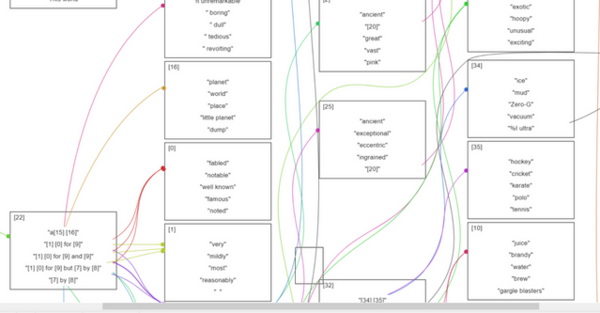
Links
- Random number generator - see Initial seed values for each Galaxy
- Oolite planet list
- Geography for thoughts on the 7ly jump limit and regional variations.
- Exploration - on general issues with this in Oolite
- Vaguely related: Musings about stuff that I could do to the source code... (2012).
- Use of the %G###### operator (2018) for allowing extra galaxies
"Discovery" OXPs for exploring the new galaxies
- Zero Map - by SMax (2016) available on the in-games Expansions Manager
- Here be Dragons - by Stranger (2019) available on the in-games Expansions Manager
- Buyable Map OXP - you now have to buy the F6 maps (partial or complete). Spara (2012).
Galaxy Seeds
- Phantorgorth' Seeds will be found here (2012 - links updated 2022, Maps by Wyvern)
